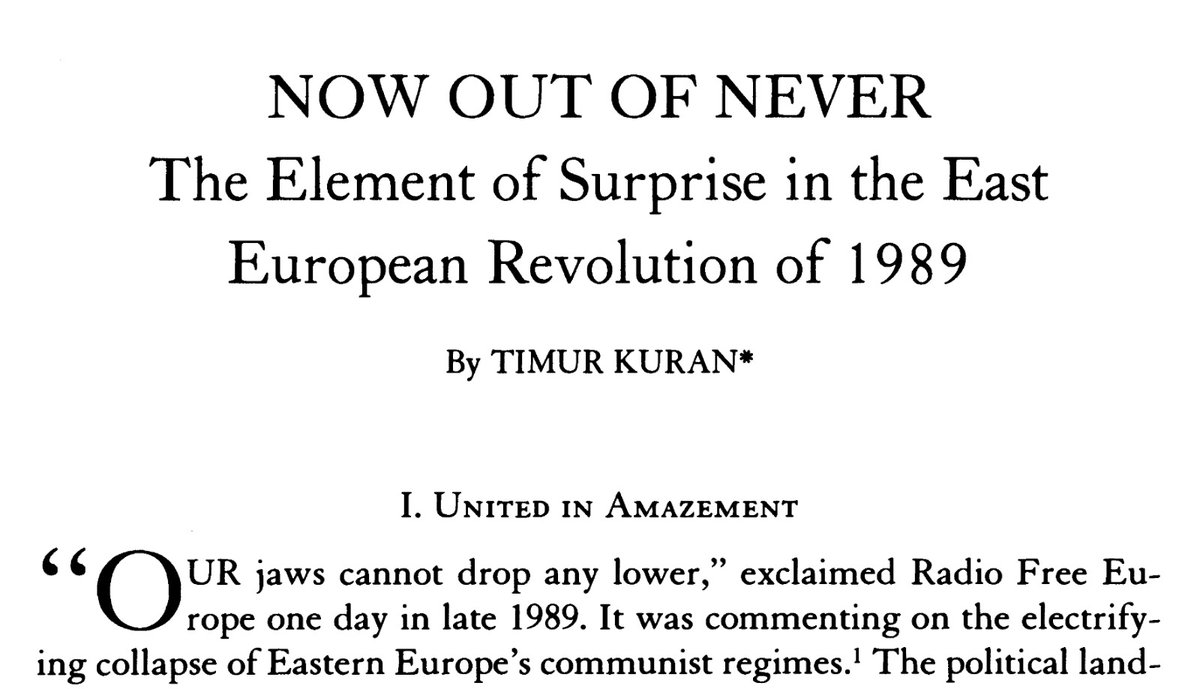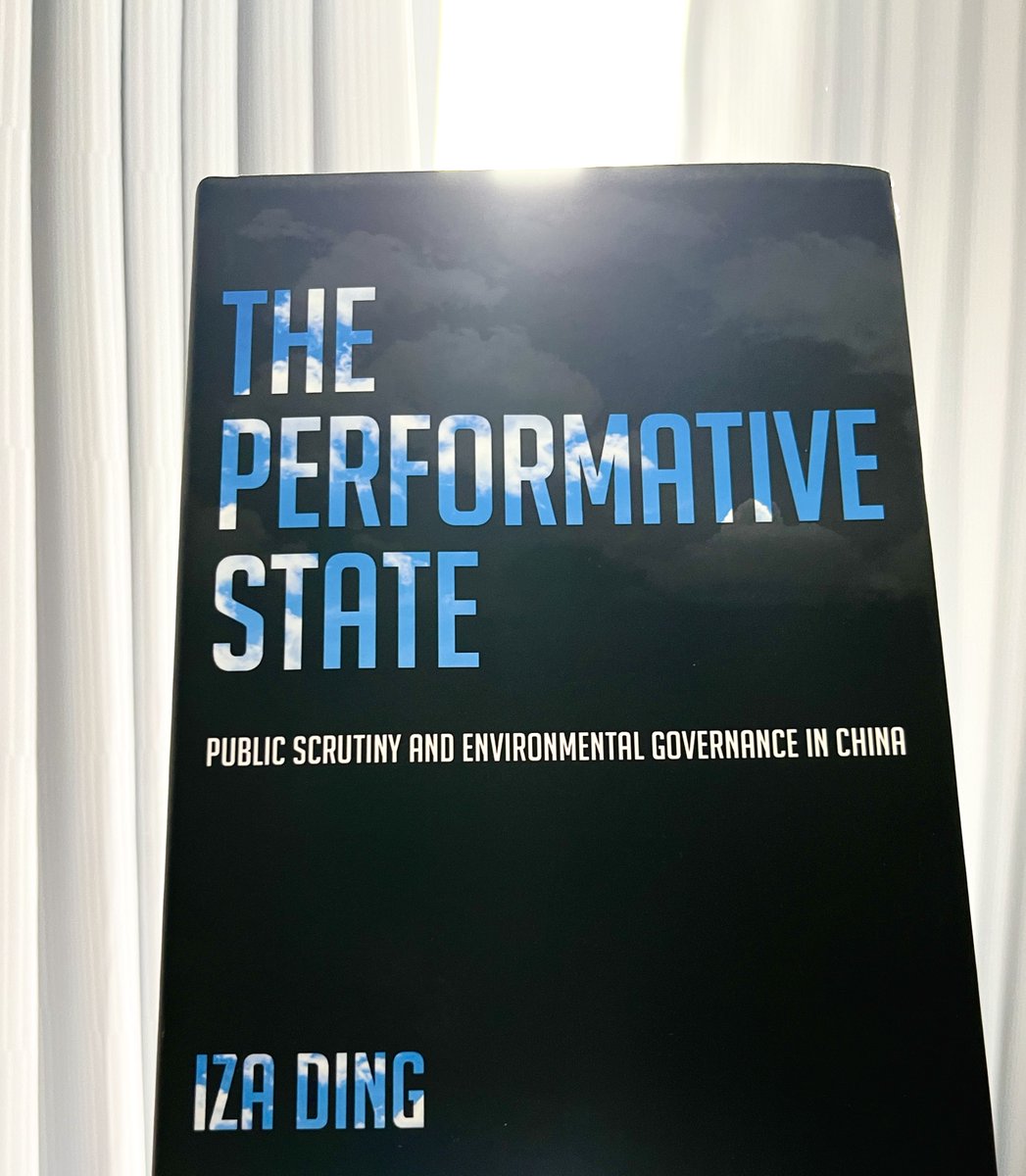What do I mean by “authoritarian teleology”? (Thank you @kaiserkuo for the plug!) Broadly speaking, it’s a style of thinking that interprets whatever an authoritarian govt does as a “strategy” to “stay/remain/survive in power.” 1/n
Since the early 2000s a research program has developed around the meta question of “how do authoritarian regimes stay in power?” It’s a question that opens many research statements. A hot topic when I was in grad school, a hot topic still. 2/n
Of course, nothing is entirely new; this is a continuation of earlier genres. But here’s what’s novel in the mainstream political science literature on authoritarianism: 3/n
Rational choice theory has given rise to a genre on “how to be an autocrat.” Autocrats are evil geniuses. They have a toolkit, or playbook depending on which metaphor one prefers. Everything is a tool out of the toolkit or a page out of the playbook. 4/n
But if autocrats are so shrewd and strategic, why are they constantly fretting about their mere survival? 5/n
We also see a functionalism that explains everything by staying in power. Repress? To stay in power. Ease repression? To stay in power. Develop? To stay in power. Distribute? To stay in power. Protect the environment? To stay in power. Pollute it instead? To stay in power. 6/n
This might not be wrong, but it is 𝒖𝒏𝒇𝒂𝒍𝒔𝒊𝒇𝒊𝒂𝒃𝒍𝒆. as After all, the regime has not collapsed! Anything I do can be said to be for the purpose of staying alive, but I don’t think that drives everything I do, unless I think like a social Darwinist. 7/n
Another big problem is that “between action and consequence lies a chasm that no one can bridge, let alone control.” The fact that ideas, institutions, and behavior often result the opposite of their intentions was a fascination of Weber, Berlin, and Hirschman. 8/n
But recognizing this means admitting that utility is not being maximized. Other factors like emotions, pettiness, petulance, values, commitments, laziness, narcissism, and mere stupidity get set aside or coopted into a “D” term for nerds who know what I mean. 9/n
The root cause of authoritarian teleology is a commonly held belief that authoritarian regimes should collapse and are doomed to collapse because they must be hated by their citizens. 10/n
Since citizens will seize the first opportunity to overthrow the regime, anything the regime does is for mere “survival.” But the literature also tells us that when citizens are not busy plotting to overthrow the regime, they are busy being brainwashed. 11/n
Thus the curious binary of an authoritarian citizen who is both a dissident and a loyalist. 12/n
Is this question “how do authoritarian regimes stay in power” useless then? Of course not. It’s an appropriate question in moments when a regime is fragile or threatened, like in 1989, or even during the early months of Covid. 13/n
But is the government 𝒑𝒓𝒆𝒐𝒄𝒄𝒖𝒑𝒊𝒆𝒅 with survival on a day-to-day basis as the literature presumes? No. When I’m dehydrated, I drink water to survive; but when I stay up till 4am watching Emily in Paris, survival is not my logic. 14/n
• • •
Missing some Tweet in this thread? You can try to
force a refresh

 Read on Twitter
Read on Twitter







